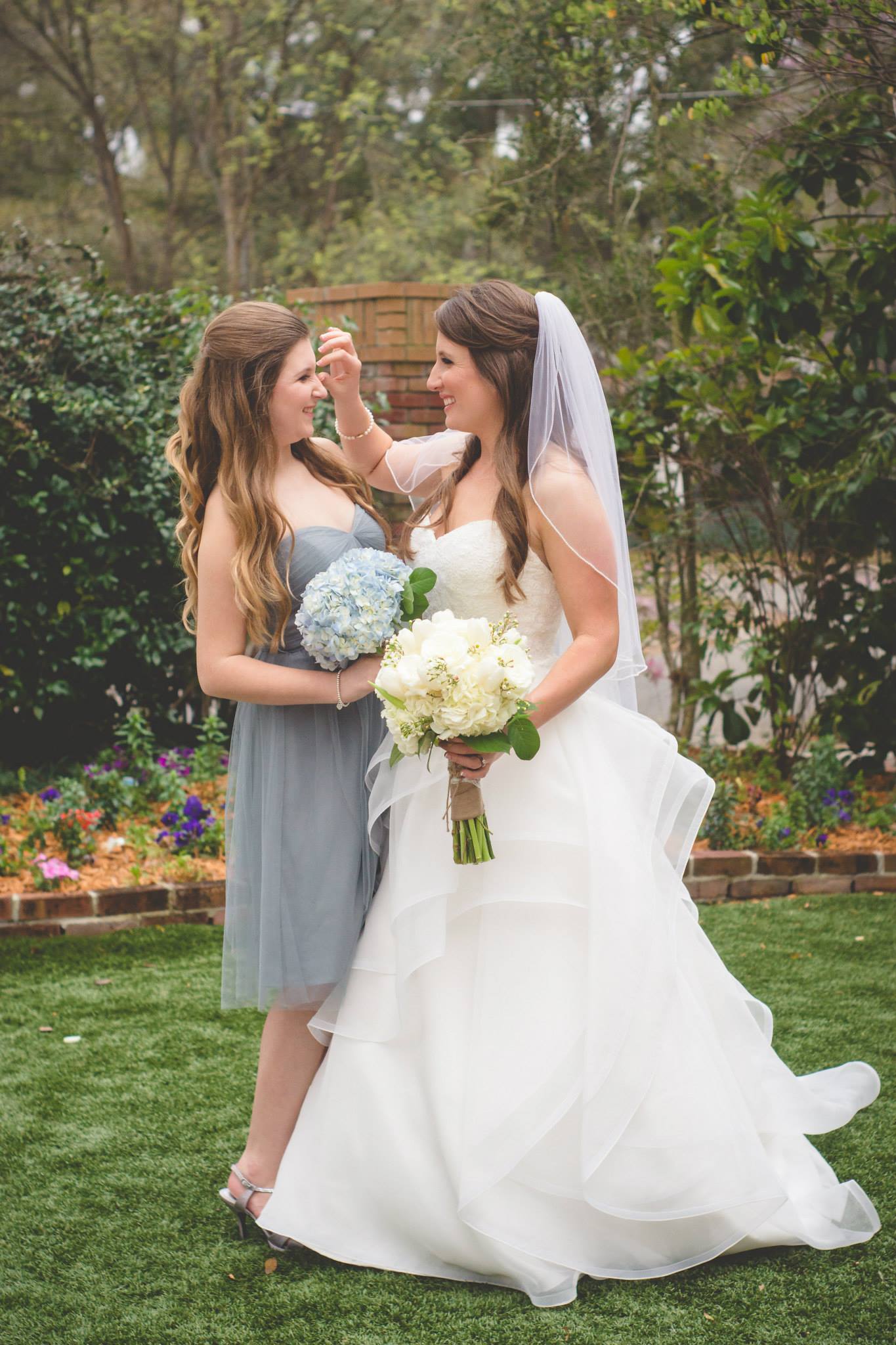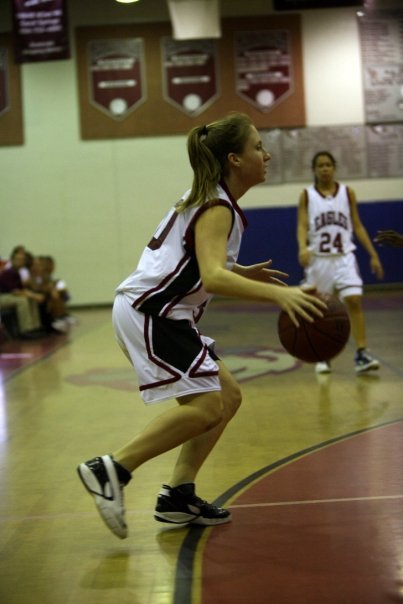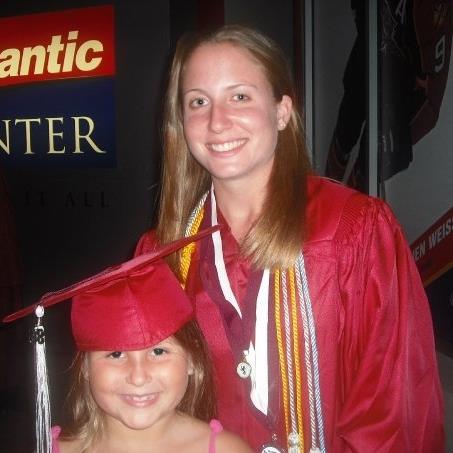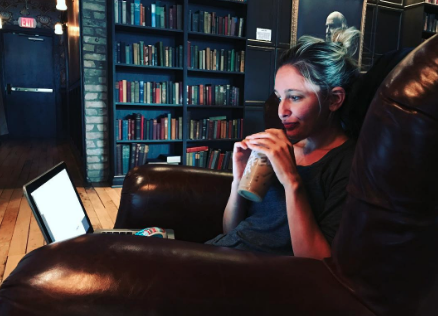On February 14, 2018 at around 2:30 PM, my sister exited her classroom at Marjory Stoneman Douglas High School as part of what she believed to be a routine fire drill—the second one of the day. As a 2008 graduate of Douglas, I can picture the route she walked as she headed past the concrete basketball courts and toward the field where we was always evacuated for fire drills. I’d walked that route dozens of times; for fire drills, bomb threats—a specific time when we had two bomb threats in one day. Our cousins who also graduated from Douglas had done the same. But it was no big deal. I always felt safe at Douglas.
The worst part of these drills was the waiting. After all, it was Florida, and it was hot, and there was no tree cover, and it was just a drill so why couldn’t we go inside already? I remember playing snake on my Nokia phone to try and pass the time. If I was lucky, I might be able to sneak away from where my class was standing and find some of my friends. Together, we’d stand out in the middle of this field near the basketball courts and wait anxiously to return to our classrooms where there was air conditioning—it was so hot.
On Wednesday, my sister entered those basketball courts, at what I presume was a lackadaisical pace. After all, it was the second drill of the day, and the school bell was going to ring soon—why were they having a fire drill so late in the day when school was going to end in a few minutes?
But at some point she learned there was no fire drill. There was a live shooter at our school.
Three summers ago, my sister was about to begin her freshman year at Marjory Stoneman Douglas High School. She was nervous about normal teen things. Was she going to fit in? Would there be bullies? How was she going to make friends with kids from all of the other middle schools that fed into Douglas? What would she wear the first day, and first week of school? What type of backpack should she buy? Was she really going to use a locker? What if she forgot her locker combo?
I told her she was going to be fine. And I meant it. I meant it with 100% confidence.
I knew she’d be fine—more than fine—because I had survived, and thrived, at Douglas. Somehow, as a nerdy kid with braces (for three of my four years there) who just wanted to play basketball 24/7, I had managed to have an incredible time in high school. I found great friends. I found a place where I fit in. I learned from excellent teachers and coaches. And I gained the skills that helped me succeed in college, and then law school—and life.
The same was true for our cousins. If I were casting them in a movie about high school shenanigans, one would be the cool, jock guy, and the other would be the friendly, chill guy who just wanted to play his guitar in the courtyard all day. We were all so different. But we all found a place where we belonged at Douglas, much to the credit of the outstanding teachers and staff at the school. And my sister, well she was so much cooler, so much more social, and so much better in every way than any of us. She would be fine. She certainly would be safe.
When my sister learned about the shooter, she ran through the field toward the middle school next door. By the time she learned that shots were being fired, she was too far away from her classroom to go back inside for lockdown, so she ran.
In my four years at Douglas, I remember running sprints on the outdoor basketball courts next to the field. And I remember jogging countless laps on the track next to the basketball courts during P.E. But I never remember running through that field. I know I never ran through that field out of fear that I was going to be shot.
Yet I can picture what she went through so vividly, as if I lived through it. But I didn’t. I would switch places with her in an instant if I could. I would run through that field a dozen, a hundred, a million times, if I could avoid my little (innocent), baby sister having to run through it like that just once.
I remember the grass in that field always seemed like it needed to be cut but it somehow never got above a certain height. The grass was tall enough to make your ankles itch, and to make you feel like a bug was crawling up your leg even when nothing was there. Sometimes, I’d walk through that field and with each step I’d feel like I set off a landmine of gnats. They’d dance in front of my face like they were about to fill my eyes and swarm up my nostrils and into my lungs until I couldn’t breath. But they never did. Instead, the gnats glistened in the sun just out of reach with dragonflies buzzing among them. They taunted me, but they were harmless.
I wonder if my sister’s ankles itched when ran through the field? Was she afraid of inhaling the gnats? I doubt she had time to think about those things.
During the summer of 2015, I went home to Parkland to be with my sister for her freshman open house at Douglas. I had been back to Douglas a few times since graduating. But it was nice to be back for a legitimate purpose. More legitimate than trying to pop into classes to say “hi” to my favorite teachers and hoping they wouldn’t be mad that I was interrupting class. And less creepy than going to basketball games played by total stranger just to be back in the gym where I’d practiced and played six days a week for ten months out of the year. The gym still smelled the same. Something always drew me back to Douglas. It felt like home.
But the school had changed a lot since I graduated. First of all, it wasn’t that easy to just stop in and say “hi.” There were new fences and gates surrounding the whole school. It looked like a weird maroon and grey (our school colors) prison. And you had to show I.D. and get this sticker with your picture printed on it just to enter the school. It all seemed so unnecessary. They didn’t need any of that stuff when I went there. And I always felt safe.
The main security measure that I remember at Douglas was Coach Feis sitting out in his golf cart at the exit gate for the senior parking lot to make sure that we didn’t leave early—something that I probably tried to do too often. But he was always nice about it. He enforced the rules in a way that didn’t make you feel like a bad person for trying to break them. Like he understood that you were in high school and wanted to leave and get better-than-cafeteria food at lunchtime. And even if he wouldn’t let you leave, he’d smile at you—and not reprimand you—for trying. I was happy to see that Coach Feis was still there when I was touring the school with my sister.
The school also had this big new building in the front. They called it the freshman building. It looked nice. It was one of the only buildings in the school that had indoor hallways with air conditioning. Every other building had open-air hallways that opened up into courtyards. The freshman building stood in stark contrast to the 1990s architecture throughout the rest of the school.
I felt like the freshman building was going to deprive my sister of the true Douglas experience. When I was there, the vast majority of freshman classes were housed in portables in the back of the school. I was disappointed we wouldn’t share the experience of slogging from portable to portable in the heat, and the rain. It took restraint not to declare, like some old curmudgeon, “back in my day we didn’t have these fancy air conditioned hallways, and state-of-the-art classrooms”—actually, I’m sure I said some variation of that.
I was happy to see that Ms. Schamis had her class in the new building. I loved Ms. Schamis. She and Ms. Verba—who we were also fortunate enough to see that day—had largely shaped my love for history and social studies. I took as many of their classes as I could. In the years since graduating from Douglas, I earned my B.A. in history and political science, and as my mom was incredibly eager to point out, I had just finished law school (and gotten married).
I didn’t want to overshadow my sister’s first day exploring Douglas, but as my mom incessantly doted on me, I hoped I had made Ms. Schamis and Ms. Verba proud. All of these years later, I can still recall preparing current event summaries for Ms. Schamis’ class each week. She made us talk about the news, and politics, and I remember studying so hard for when she tested us on the maps of each continent.
To this day, I can still remember Ms. Verba telling the story of how World War I started with the assassination of Franz Ferdinand and his wife, Sophie. In one class she said Sophie was wearing a lavender dress during the assassination. In another class a year later, she said the dress was yellow. I eventually realized that the color of the dress didn’t matter (although, I really feel like it was lavender) and that by bringing these stories to life, Ms. Verba helped us learn and grow. She was stern but loving in a way that guided you to find the right answer without being told what it was.
I was happy these amazing teachers were still at Douglas. I knew they would look out for my sister. And I hoped she would have the opportunity to learn from them, like I did.
At around 3:00 PM on Wednesday, February 14, 2018, I received a text message from my dad saying that my sister was okay. Why wouldn’t she be okay?
I called him to ask what was going on. He told me there was a shooting at Douglas but that my sister ran out and was safe at a friend’s apartment. She was okay. But I felt like I’d been punched in the gut. My office was spinning. I needed to hold my sister. I need to hug her and see that she really was okay.
Living hours away, the best I could do was call. My dad warned me that her phone might be dead. After all, she was a teenager, and she’d just spent a full day at school texting and snapchating. She’d usually be heading home now and be able to recharge her phone so that she could maintain her streaks, and do a bunch of other things that I still don’t understand as much as I try to be a “cool” big sister.
Luckily, she answered when I called. We were so lucky. She was okay.

She had run to a friend’s place at an apartment complex near the school. We used to live in that apartment complex. She was so little then. I think she learned to walk there. I doubt she even remembered. We lived there when I was in sixth grade.
One time, I was being bratty and my punishment was to take care of my sister whenever she woke up in the middle of the night for a month. She woke up a lot. Over time, we developed a routine. I’d take her out of her crib, take out her toys, and at some point I’d fall back to sleep on the floor while she played. I’d wake up to my mom shaking me because I had to get ready for school. Sometimes there would be blocks stacked on my face, other times I’d be surrounded by stuffed animals. I was supposed to be watching her.
While I tried to ask her what happened, and find a way to watch local Florida news from my office, she recounted what she was seeing on TV. Eventually, from states away, we were watching the same live news feed. We watched her classmates walk out of the freshman building in single file lines with their hands above their heads. She shrieked thinking she saw one of her friends whom she’d been worried about. But we couldn’t really tell if it was her. We hung up because she’s a teenager and (of course) her phone was going to die.
I watched as police swarmed my school—our school. There were SWAT teams, and ambulances, and fire trucks, and news crews, and police cars. I recognized the streets and the buildings, and everything seemed just like it always was except my home, Parkland, Florida, was on TV, and there was a shooter in my high school. How could this happen?
The suspect was still at large. And then he was caught. And all the while lines and lines of students walked out of the school. Some looked horrified. Some looked so casual. At first seventeen were injured. Then seventeen were dead, and many more were injured.
My heart breaks thinking about the loss suffered by the families of these wonderful students, teachers, and coaches. I can’t sop thinking about them. I don’t think I ever will. I can picture the classrooms they were sitting in. And the hallways they were running through. The way the light shines off the linoleum floor, the same way it does in hospitals. I can hear the sounds of rapid gunfire, children screaming in pain, and others whimpering as they fear for their lives. And I know it was all so much worse than I can ever imagine. This should not have happened.
Both of my grandpas died while I was in high school. Their funerals were the first I ever attended, just a few months apart. I was lucky to not have experienced a loss like that earlier in life. My sister was too young to remember.
I learned about one of their deaths at the end of the school day. It was awful. My parents had tried to get me to come home so they could tell me. But I wanted to stay at school and be with my friends. Why would I go home? I had a basketball game that night. I always stayed at school before a game. I left them with no choice.

I tried to gain my composure in this dimly lit hallway that ran between the gym and the locker rooms. It always seemed dark in there, even in the middle of the day when the sun was shining everywhere else. Everything moved in slow motion, as I tried not to cry in public, in front of my friends. But I was unsuccessful. Through the tears, I could see my classmates staring in a way that was both caring and curious. I remember one of my teammates (I don’t remember who) wrapping their arm around my shoulder and leading me out of that dark hallway. I don’t remember how I got home.
My parents told me that I didn’t have to play in my game that night but I wanted to. I didn’t want to be weak. I wanted my Papa to be proud. My coaches supported my decision, and I played. I played great. We won a game against a private school that we weren’t supposed to beat.
The most traumatic thing I recall going through in high school is the death of an elderly grandparent. My sister would have a very different response.
The past few days, I’ve had to talk my sister through things that are unimaginable. Which of multiple funerals should she attend? Should she go at all? Is she a bad person if she doesn’t go? What should she wear? What’s a funeral like at a church? (We’re Jewish). Should mom drive her? Or should she go with friends? Will the crying ever stop? Should she feel guilty when she’s not crying? Some of these questions are too hard to answer, or at least to really answer. She’s just a teenager after all. Some of her questions seem trivial too answer. But of course she’s a teenager and those are the things that teenagers worry about. She shouldn’t have to worry about these things. I didn’t when I was her age.
When I think about my sister, and how innocent and perhaps naïve she is, I think about the first time I got a speeding ticket with her in the car. Now this wasn’t my first speeding ticket (not that I’ve had that many). But Parkland police are notorious for enforcing the speed limit, which is often only 30 MPH in our small town, so this wasn’t my first rodeo. I was probably in college at the time, so my sister was still in elementary school. I pulled over when I saw the police sirens. My sister immediately burst into tears.
Apparently, she’d never been with my parents when they’d gotten a speeding ticket before. She didn’t know how it worked. She thought I was going to get arrested and she’d have to wait in the car for mom or dad to come and get her. The police officer was very nice. He took my license and registration and assured my sister that he would not be taking me away. Eventually, she calmed down. I don’t remember if I got a ticket or just a warning. But I remember feeling awful that I put my sister through that. I was supposed to be protecting her.
After everything that’s happened, I feel so lucky, and fortunate that my sister is safe. She is okay. But in what universe does the definition of okay include surviving a shooting where your classmates and teachers were senselessly murdered while you ran through a field fearing for you life?
My sister is going to go back to school in a few days, or a week. I know she is going to be worried. And I’m going to tell her she’s going to be fine. I’m going to tell her everything is going to be okay just like I did before her first day of high school when she was so nervous about bullies and where she was going to sit in the cafeteria. I’m going to say some version of that. But I won’t mean it. I won’t mean it like I did on her first day of school when I really, truly, 100% believed she would love Douglas, and she would be safe and happy there. I know the teachers and faculty at the school are going to do the best they can to guide their students through these devastating circumstances.
But how did I let this happen? I didn’t protect her. I didn’t keep her safe. And I don’t feel a step closer to making her, or any other student safer. I vote in every election. I even studied violence in schools while serving as a research assistant for a professor. Yet I feel helpless, and hopeless, and broken. I don’t know how to fix this. There is no pep talk in the big sister playbook for this moment. There shouldn’t have to be.
I was in fifth grade when my sister was born. I had asked for a big brother because I wanted someone to play sports with. At the time, I didn’t understand how my presence somewhat precluded the birth of an older sibling. But I was excited about my sister. I figured she’d be cute and stuff. On the day she was born, I thought the best part of that day was getting to miss school to be at the hospital with my mom and dad—and that part was pretty good. But then I saw my sister in her little incubator being rolled down the hallway. My dad was in scrubs when he introduced me to her. She was so small. She had the darkest brown eyes. She couldn’t walk, or talk, or do anything. I had to protect her. I felt that instantly.
I watched her diligently in the nursery ward. I watched as they poked and prodded her, and most of all I made sure she didn’t get switched with any other babies. That was my baby sister. I pressed my nose up against the glass and watched her. At times, they’d take her into the back part of the ward and the only way I could see her was if I stood up on my tippy toes and propped my self up with the window ledge. I stood there for hours until one of my grandparents made me eat something. I don’t remember what meal it was or what I ate. But I ate fast so that I could get back to my window. I had to watch her. I had to keep her safe.
I can’t help but feel like I failed her (probably, several times). I don’t want to ever feel this way again. I don’t want anyone to feel this way again. Something needs to change.
I’ve called my congressman, and my senators. I will call them again, and again. In a few weeks, I’ll probably be able to not break down in tears when I ask them what they’re doing to prevent gun violence in schools? I imagine the silence on the other end of the phone will be equally deafening each time. I’ll vote with my conscious, the pain I feel in my heart, and the knots I feel in my stomach until someone on the end of that phone gives me a real answer, and provides real action.
Although my sister an I are ten years apart, we’ve shared a lot of the same experiences at Marjory Stoneman Douglas High School: attending the Pig Bowl (a football game against our rival high school), dressing up for spirit week before Homecoming, having Ms. Rosa as an art teacher (and getting in trouble for talking too much in class). We’ve walked the same hallways, and sat in the same classrooms. I’ve gotten to watch her play volleyball in the same gym where I played basketball, with the same smell, the same hanging lights, and the same loud bleachers that shake and reverberate no matter how delicately you try to walk on them.
I felt bad my sister spent so much time in that gym at my games when she was little.

I knew she’d rather be at home lining her stuffed animals up in rows so she could play teacher. From my room, I could hear her telling her teddy bears to quiet down so she could get through her “lesson plan.” Sometimes, she’d knock on my door while I was doing my homework to tell me that “the kids were really misbehaving.” I think I was the unofficial principal of her stuffed animal school. So I’d go into her room and we’d put a bear in time-out for a few minutes to think about what he’d done. That bear usually took on the name of whatever kid was a troublemaker in her class that year. Now, my sister chooses to be in that gym, and probably doesn’t want me talking about her teddy bears.
While our Douglas experiences are in many ways similar, just a few minutes on one terrible day made my sister’s time in high school so much different than mine. No child, student, or person should have to experience what she’s gone through.
The last time I was at Douglas, it was just as I remembered it. It had new gates, and a new building. There were new murals of our mascot, the Eagle, soaring through the sky looking as valiant and fierce as ever. And I’m pretty sure they added several banners to account for all of the girls’ soccer team championships they’ve won. But for the most part, it was the same.
Now, everything has changed.
The next time I go to Marjory Stoneman Douglas High School, it will be so different. My hands tremble just thinking about it. My throat tightens to the point that I can barely swallow. I know I will cry—an ugly, make up smearing down my face kind of a cry. But part of me has a glimmer of hope that among the tears, and the pain, and the way I feel like I’m drowning on the outside while a fire burns through my chest on the inside, there might be some change that isn’t so sad, and terrible, and heart wrenching.
In the past few days, I’ve seen my hometown come together. I’ve seen students throughout Parkland, Broward County, Florida, and the nation stand up and say that they will not tolerate their government failing them any longer. We need to do better. We have to do better. I really hope that despite the fact that we’ve failed to prevent gun violence in schools, and elsewhere, over and over again in a way that is so shameful, and so unacceptable, maybe this time will be different. I have to believe that the students and alumni of Marjory Stoneman Douglas High School will be the ones to make this time different.
–Marla Spector Bowman
Marla currently lives outside of Raleigh, North Carolina where she works as a commercial litigation attorney. She lives with her husband, Kyle, and their cat, Clyde. She loves running and watching college football. Contact me here: mspecbowman@gmail.com



